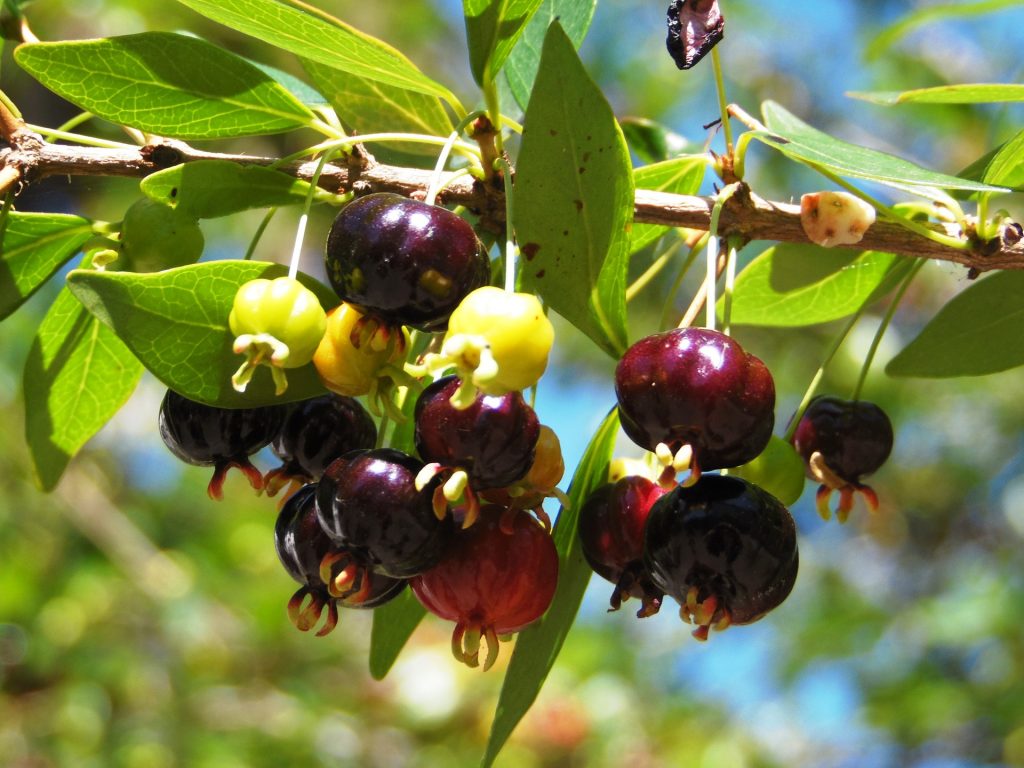
Pitanga tree (from the botanical family of Myrtaceae) is a typical tree from Brazil, but nowadays it is easily found in countries of the American continent (South, Central, and North), Africa and even in Portugal, in Madeira Island. Its fruit is the Pitanga, some round berries, reminiscent of cherry, which come in shades of red, orange, yellow or black, depending on the state of ripeness. Pitanga has a watery, fleshy and fragrant pulp and offers a non-addictive bittersweet flavor.
The fruit, the leaves of the pitanga tree and even the bark are a valuable aid to human health, as they have unique properties, including astringent, analgesic, depurative, digestive, stimulating, refreshing, antioxidant, soothing, anti-inflammatory or diuretic, vermifuge, among others. In its chemical composition, we find carbohydrates, proteins, calcium, vitamins A, C, B complex, iron and phosphorus and have a low caloric level.
Pitanga can be consumed in fruit (fresh, smoothies, juices, jam …) or in tea with the Pitanga tree leaves. The pharmaceutical industry uses Pitanga or Pitanga tree leaf extract to make personal care products (creams, shampoos, shower gel…) because in its chemical properties there is the ascorbic acid which is antioxidant and prevents early cell aging.
Pitanga consumption or Pitanga tree leaf tea can stop diabetes, cholesterol, osteoporosis, arthritis, reduce blood pressure, prevent cardiovascular disease, treat bronchitis and respiratory infections, help lose weight due to its purifying action and treat menstrual cramps. In addition to combating acne and wrinkles, Pitanga is also being the subject of scientific studies to assess its full potential in combating cancer cells.
How to make tea?
In a liter of boiling water put three leaves of pitanga tree and after raising the boil turn off the heat and cover for ten minutes. Then just let it cool and drink it throughout the day. In the case of diabetes, this daily treatment should be repeated for 25 to 30 days.
Contraindications:
It is always necessary to check if the body is allergic to this plant, as people with problems of hypertension or heart stress should not consume Pitanga or Pitanga tree tea. It is always recommended that you consult a health specialist before beginning any treatment or consumption of any therapeutic plant.

This text is an awareness. According to the season and the moment in which you are, it is up to each one to feel if they should consume this food. The dosage and frequency depend on the nature and physical condition of each Human Being.




